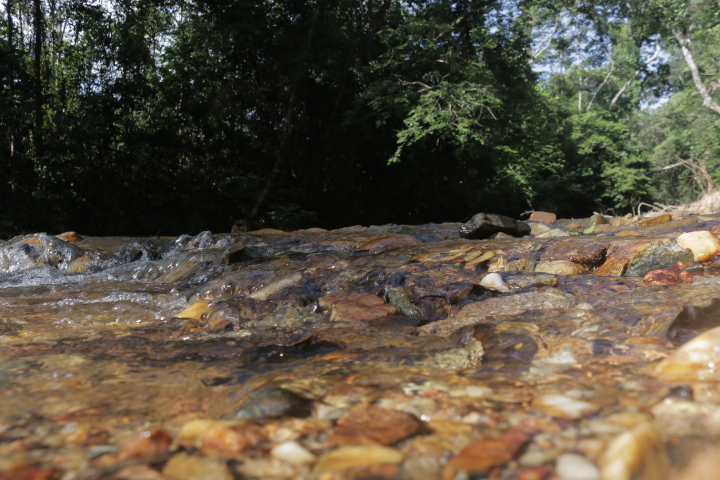Top: Fog forms over a montane forest in Zorzor, Lofa County. The DayLight/James Harding Giahyue
By Gabriel M. Dixon
Today, the world celebrates Earth Day. Every year, people from more than160 countries across the world come together at different events to observe the day. This year’s celebration is being held under the theme: “Invest in our Planet” in recognition of the threats the earth faces, and to raise awareness against their causes. The day is also celebrated to call the attention of world leaders to the danger humanity is faced with and why we must stop the damage to our planet.
In 1969, US Senator Gaylord Nelson from Wisconsin, organized a demonstration to raise awareness about environmental issues in the United States of America. His action rallied individuals and organizations across the United States in support of his idea and led to the creation of the Environmental Protection Agency by the U.S. government. In 1970 the first Earth Day celebration was held commemorating the efforts of Senator Nelson. The historical event brought together 20 million participants. By 1990, Earth Day was an event celebrated by more than 140 countries around the globe.
The Earth, according to scientists, is about 4.5 billion years old. With a land surface area of 57.5 million square miles, the Earth is the only planet that supports life in the Milky Galaxy. There are now more than 7.6 billion people whose lives are being supported by our planet. But the earth is also home to other forms of life including plants, animals, and insects. Along with humans, the planet hosts 8.7 million different species that make up its biodiversity.
But the planet is under serious threat and its survival depends on what its inhabitants must do to save it. Evidence provided by scientists shows that the greatest threat to the planet is “global warming, ”which is a rapid increase in the average surface temperature of the Earth. This warming and cooling lead to different climatic conditions around the world, such as average rainfall, and temperature which happens over a long period of time. Throughout its history, the earth has warmed and cooled itself. But the last 20 years have contributed more to the warming of the earth than any other period in human history. This is because of the many different pressures being driven by human activities such as industrialization, the use of fossil fuels, and deforestation. Scientists agree that deforestation, which is the clearing of land for agriculture, mining, industrial, construction, and other purposes, along with forest degradation now constitutes 10 percent of climate change worldwide.
In Liberia, forests are being knocked down at an alarming rate. In the last 20 years, the country has lost 4.8kha (kilo hectares) of its forest cover to deforestation, though it prides itself on having the biggest remaining rainforest in the Upper Guinea region. Despite the government passing laws that protect and safeguard forest and land use, the management of natural resources to prevent unsustainable practices and environmental crimes, illegal logging and bad practices by agriculture companies are hindering the realization of commitments it made to the rest of the world. Government corruption and lack of openness are fueling ugly practices that are pushing up climate change impact on rural communities and negatively affecting the livelihoods of poor farmers and fishermen across the country home to much of the world’s diverse array of plants and animals and provide essential natural resources from timber
As we celebrate World Earth Day, we call on the government of Liberia to double its efforts to combat climate change. The government has to ensure that the right policy actions are taken and robust enforcement mechanisms are adhered to by duty bearers in line with its commitments to the world. In this way, the government will be “investing in our planet.”





